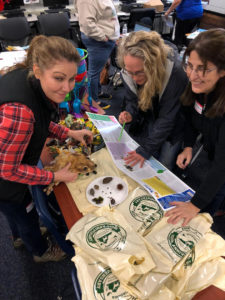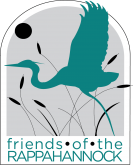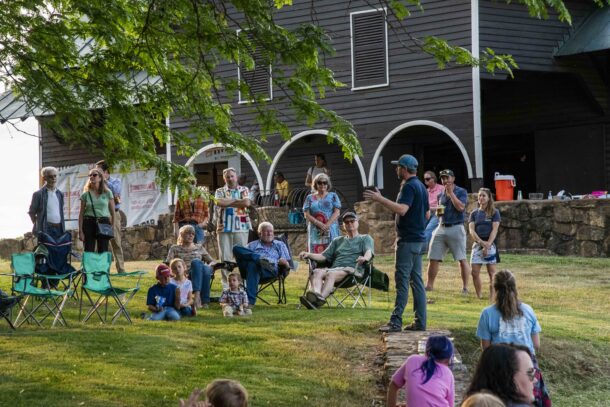![]()
 Although FOR Educators consider themselves a well-educated group, we are always on the lookout for the opportunity to improve our skills and expand our horizons. Inclement weather with cold temperatures and icy roads typically accompany the winter months here along the Fall Line of the Rappahannock River. Therefore, it is understandable that the field trip and summer camp programs that allow us to reach over 6,600 students a year subsides from December to March.
Although FOR Educators consider themselves a well-educated group, we are always on the lookout for the opportunity to improve our skills and expand our horizons. Inclement weather with cold temperatures and icy roads typically accompany the winter months here along the Fall Line of the Rappahannock River. Therefore, it is understandable that the field trip and summer camp programs that allow us to reach over 6,600 students a year subsides from December to March.
But that does not mean we rest on our laurels! We pursue grants to expand and improve our current programs. We develop new activities for environmental education and introduce them to traditional schoolroom teachers in professional development classes. And, we hone our skills by taking workshops provided by other excellent organizations.
This month, two of FOR’s environmental educators will attend a day-long workshop by Virginia Department of Game and Inland Fisheries, Project WILD Coordinator, Suzie Gilley. During the workshop we will be introduced to the Growing Up WILD guide and learn how to model a workshop for other teachers. This program builds upon FOR Education Department’s core beliefs; science education should start at an early age. By focusing on children between the ages of 3 and 7, and using concepts in the Standards of Learning, we sharpen our skills at reaching children with our message of environmental education while complementing their traditional school-based learning. Participants in the Growing Up WILD facilitator workshop barter for their training by agreeing to lead at least one teacher training workshop during the next year to further spread the important message and skills to engage young children with science by getting them outside; hence, Growing Up WILD!
While it may be chilly outside, FOR educators are heating up a recipe for another successful year of environmental education.
Nancy Stalik
Environmental Educator

